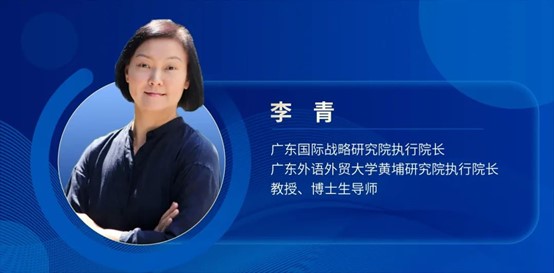导读:
近日,我院云山领军学者、丹麦奥尔堡大学国际关系学教授李形与我院执行院长李青教授就中国与全球南方的关系在《China Daily》上联合发表文章。
文章表示,与西方国家相比,中国对全球南方表现出更多的理解、同情和尊重。同样,全球南方倾向于普遍接受中国的全球性倡议,为合作、互利和共同繁荣提供机会。
以下为原文转载。


Competition for Global South
China demonstrates far more understanding, sympathy and respect toward the region compared to Western countries
The growing importance of the Global South in the evolution of the international order has been shown over the past few decades. While some have criticized the concept of the Global South for oversimplifying diverse realities, it's important to recognize that countries in the Global South possess their own autonomy in making judgments, choices, and decisions on global issues.
Josep Borrell, the European Union's top diplomat, recently acknowledged that "the era of Western dominance has indeed definitively ended". He warned against the EU framing global relations as "the West against the Rest", revealing that "improving our relations with the 'Global South'" is one of "the four main tasks on the EU's geopolitical agenda".
John Ikenberry, a representative of the US liberal international relations theory, has re-divided the world into the Global West, the Global East and the Global South. He identified China and Russia as the primary representative of the Global East, thereby positioning the purported rivalry between the Global East and the Global West as the principal dynamic shaping the international order. Simultaneously, he acknowledged that the Global South will serve as an alliance force fought over by both the Global East and the Global West. Such a three-world division is essentially a repeat of the Cold War, but a conceptual twist is that Ikenberry, like many Western opinion-makers, intentionally categorizes China as a superpower, a pole in its own right, vis-a-vis the Global South.
The ongoing Ukraine crisis and the conflict in Gaza actually show that the West is losing the Global South. Notably, no country from the Global South has imposed sanctions against Russia. The West's attempts to rally international support against Russia's military operation in Ukraine have encountered obstacles in gaining the backing of the Global South. This is largely due to perceptions of double standard, arising from the differential treatment of the conflicts, including various issues spanning human rights, military intervention (sovereignty), free trade, nuclear proliferation, climate change, refugees and more.
The importance of the Global South in China's international relations has increased in recent decades. China's modern history shares similarities to that of the Global South, and China recognizes itself as a "natural part" of the Global South. The Global South has played important roles in China's international relations, ranging from providing political support to China, facilitating its international recognition and representation in the United Nations Security Council during the Cold War, to fostering deepened economic cooperation in the past decades.
China's role as an engine of world economic growth is generating a positive impact of "upward mobility" for the Global South. It has made significant investments in the Global South through the Belt and Road Initiative, particularly in infrastructure projects such as roads, railways, ports and energy facilities.
Admittedly, due to colonial legacies, the political and economic relationships between Western nations and the Global South are more intricately interconnected and intertwined compared to those between China and the Global South.
Also, discourses and narratives repeated by Western politicians and opinion-makers about Chinese "neocolonialism", "neo-imperialism", and "debt traps" have misinterpreted reality and distorted relationships.
In this context, it is not surprising for countries in the Global South to consciously perceive China as a global superpower, given its substantial comprehensive national power.
Therefore, China must undertake the task of unveiling and deconstructing the false consciousness perpetuated by Western cognitive warfare, which disseminates biased information and shapes global awareness and attitudes.
It is crucial for China to consistently engage with the Global South, given that the competition in the Global South is multifaceted, often fueled by a combination of economic, political, and strategic interests. Effectively navigating these dynamics entails acknowledging the diversity of the actors involved and understanding the intricate interplay of interests at the global, regional and local levels.
Since the 2010s, the Chinese government has launched several global initiatives aimed at benefiting the Global South. These initiatives underscore China's contribution to the integration of the Global South into a global community with a shared future.
While China does not assert its intention to overthrow the current international order and establish a new one, its global initiatives, notably the BRI, are often perceived by Western powers as Beijing's endeavor to construct a "world order with Chinese characteristics". From the Western perspective, the BRI is seen through the lens of "systemic rivalry," characterized by zero-sum competitions in geopolitics, geoeconomics, and global governance. However, for the Global South, the BRI would align closely with the principles of South-South cooperation, offering an opportunity for collaboration, mutual benefit and shared prosperity.
China has a unique leverage in bolstering South-South cooperation through both bilateral and multilateral mechanisms. The Chinese economic development model has become a major source of attraction for the Global South. China demonstrates far more understanding, sympathy, and respect toward the Global South compared to the Western countries. Similarly, the Global South tends to be generally receptive to China's global initiatives and values the long-standing historical connections forged over decades with China.

文章来源:《China Daily》


